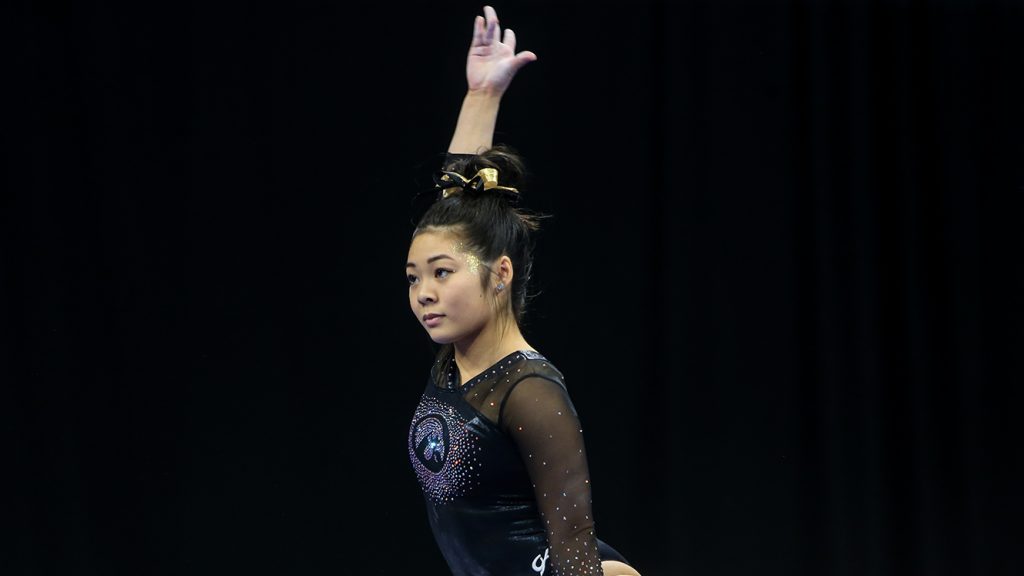Routine is key in a sport in which success relies heavily on consistency, so the Iowa women’s gymnastics team is expected to benefit from the season’s change of pace.
The athletes got a chance to work out on their own during two breaks over the holidays, and in coming back, some things had faltered.
Physically, head coach Larissa Libby said, the team is ready for the rest of the season. Mentally, it’s been harder to get back in the game.
“You’re so regimented in gymnastics your whole life, so when you’re not in any sort of schedule at all, it just makes it difficult,” Libby said.
By getting back to school and especially having at least one meet every week from now on, the routine is expected to lift the mentality.
Libby compared training for gymnastics to training for football. Gymnasts aren’t directly facing off with the competition, and it’s hard to re-create the stress of competition.
By competing at least once a week and getting into the heart of the season, the consistency and mentality will strengthen.
“The more times you get up and compete, the better you get,” Libby said. “I think that it will help them tremendously to be going every weekend so that it becomes so monotonous that it loses its pressure.”
RELATED: Women’s gymnastics kicks off season in Arizona
Compared with past years, this season’s current lineup looks a lot different in terms of the athletes who are competing in each event and the overall numbers. Competitively, past teams have been stronger, but this year’s team is more cohesive in that they make fewer mistakes.
“We are a little bit less consistent than I would like, but the gymnastics that is being done is great,” Libby said.
The Hawkeyes know what they have to do to compete at a high level this season, and the work they put in prior to the break also feeds into the results that will come.
“We really prepare during the preseason so when we get back from the holidays we’re in go mode, we’re go-time, and it’s all in,” sophomore Clair Kaji said.
The change of pace in the season affects athletes of different ages differently. For the younger members, it can be especially hard to transition from being trained by coaches to training individually.
However, even the freshmen on the team are transitioning in a positive way.
“It’s really different, but [the break] gives you times to think about what you need to work on, and it’s a good experience,” freshman Emma Hartzler said.
As the athletes grow, the ability to maintain a strong mentality throughout the change in schedules becomes more of a habit.



